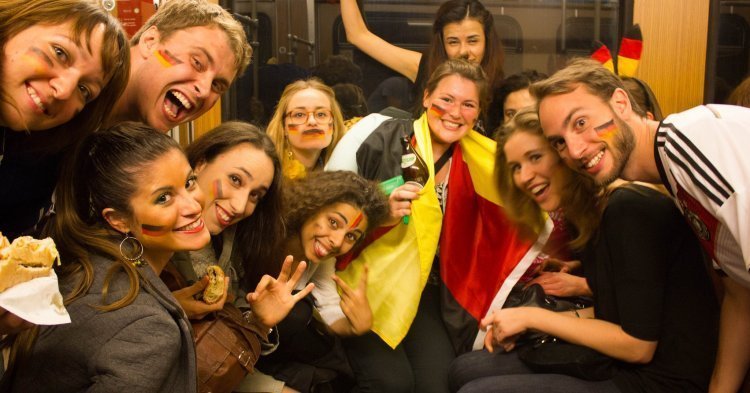The “Erasmus Days” were presented during a press conference on October 10th at the Permanent Representation of the European Commission in France, in the presence of Yves Bertoncini, President of the European Movement in France. Speakers from all over France came to talk about their projects for students, jobseekers, middle school students in priority education areas and people with reduced mobility, thus demonstrating the accessibility of the Erasmus programme to everyone, and not only to university students. These festive events are thus the place of meetings and exchanges around photography exhibitions, concerts, theatrical performances as well as conferences and debates.
The Erasmus Days are also an occasion to celebrate “the concrete Europe”, the Europe close to the citizens and which gives them an extraordinary opportunity for their personal and intellectual enrichment.
The Erasmus programme is the best way to embody the motto of the Union, “United in Diversity” : studying abroad and meeting people coming from all over the Continent contributes to the forming of a European feeling, which is necessary to ensure the longevity of the European project.
Erasmus is the greatest success of the European Union to date
The European Action Scheme for the Mobility of University Students (ERASMUS) programme was created in 1987 at the initiative of the President of the European Commission, Jacques Delors, who saw it as a unique opportunity to develop the European feeling among young students.
Today, almost 3000 institutions in 33 countries are participating in this programme, and in 2014 the European Commission launched Erasmus+, whose budget has been substantially increased (it amounts to about 14 billion euros for the period 2014-2020, meaning 2 billion euros per year).
I am in a good position to talk about the benefits of this exchange program since I spent a year and a half studying and then working in Germany. Studying in a foreign university is very interesting as the pedagogy, teaching, and life in the campus are different compared to France. But the most important and rewarding part of this experience is simply living in a foreign country, embracing a new culture, mastering one or more foreign languages, meeting people with another way of thinking but who are like us aware of the chance to live in Europe.
This is why the European Commission and the Member States should place education and formation at the top of their list of priorities. There are currently voices complaining about the limited resources allocated to this programme. For instance, Thomas Piketty denounces the fact that Europe spends annually 2 billion euros for Erasmus and 200 billion to repay the debt interests and affirms that it is necessary to reverse this trend.
It is true that the potential of Erasmus deserves to be developed. If with 2 billion euros a year we can finance a program transforming so many European citizens’ lives, imagine what we could do with 200 billion euros a year!
The “Erasmus Days”, a second Europe Day?
If Europe Day is celebrated on 9th May, the date of the Schuman Declaration of 1950, the “Erasmus Days” could become a “second Europe Day”, to use the words of Yves Bertoncini, giving the floor to all the ordinary citizens who are making Europe by the culture and the knowledge of the other, and to all those who give this chance to these citizens.
Considering the enthusiasm aroused by the first “Erasmus Days”, a second edition is already scheduled for 12th and 13th October 2018. All these events must pay tribute to the Erasmus programme since without it, Europe would not really be the same. Let’s “L’Auberge espagnole” thrive! [1]
For further information and to find an event near you: www.generation-erasmus.fr/erasmusdays/



Follow the comments: |
|
